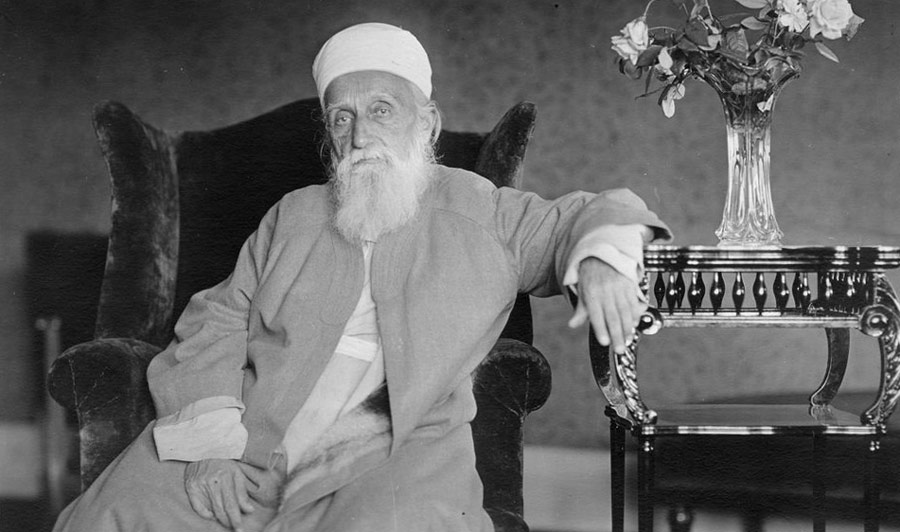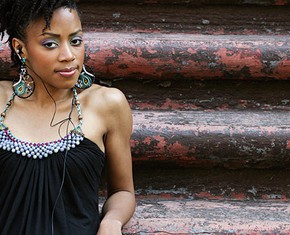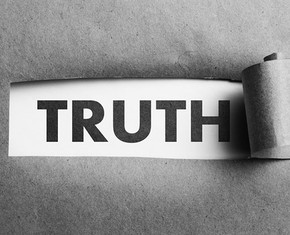The views expressed in our content reflect individual perspectives and do not represent the authoritative views of the Baha'i Faith.
Women and men have been and will always be equal in the sight of God. – Baha’u’llah
When people think about the oneness of humanity, they often focus on issues of race, religion or nationality—but oneness also requires the equality of women and men.
The Baha’i teachings say that in this age, women are destined to take their place as full equals in every aspect of human endeavor.
Addressing an audience in Philadelphia in 1912, Abdu’l-Baha elaborated upon this fundamental Baha’i principle:
In proclaiming the oneness of mankind He [Baha’u’llah] taught that men and women are equal in the sight of God and that there is no distinction to be made between them. The only difference between them now is due to lack of education and training. If woman is given equal opportunity of education, distinction and estimate of inferiority will disappear. The world of humanity has two wings, as it were: One is the female; the other is the male. If one wing be defective, the strong perfect wing will not be capable of flight. The world of humanity has two hands. If one be imperfect, the capable hand is restricted and unable to perform its duties. God is the Creator of mankind. He has endowed both sexes with perfections and intelligence, given them physical members and organs of sense, without differentiation or distinction as to superiority; therefore, why should woman be considered inferior? This is not according to the plan and justice of God. He has created them equal; in His estimate there is no question of sex. The one whose heart is purest, whose deeds are most perfect, is acceptable to God, male or female. Often in history women have been the pride of humanity—for example, Mary, the mother of Jesus. She was the glory of mankind. Mary Magdalene, Asiyih, daughter of Pharaoh, Sarah, wife of Abraham, and innumerable others have glorified the human race by their excellences. In this day there are women among the Baha’is who far outshine men. They are wise, talented, well-informed, progressive, most intelligent and the light of men. They surpass men in courage. When they speak in meetings, the men listen with great respect. Furthermore, the education of women is of greater importance than the education of men, for they are the mothers of the race, and mothers rear the children. The first teachers of children are the mothers. Therefore, they must be capably trained in order to educate both sons and daughters. There are many provisions in the words of Baha’u’llah in regard to this. – The Promulgation of Universal Peace, pp. 174-175.
Abdu’l-Baha further explained how women’s participation in world affairs will help bring about a healthy balance:
The world in the past has been ruled by force, and man has dominated over woman by reason of his more forceful and aggressive qualities both of body and mind. But the balance is already shifting; force is losing its dominance, and mental alertness, intuition, and the spiritual qualities of love and service, in which woman is strong, are gaining ascendancy. Hence the new age will be an age less masculine and more permeated with the feminine ideals, or, to speak more exactly, will be an age in which the masculine and feminine elements of civilization will be more balanced. – quoted by J.E. Esselmont in Baha’u’llah and the New Era, p. 149.

Abdu’l-Baha at the Rittenhouse Hotel in Philadelphia (June, 1912)
In the mid-nineteenth century at the time of the Bab’s declaration of his mission, the women of Persia, as in most parts of the world, suffered under severe restrictions. Some religious leaders of the time went so far as to argue that women did not even possess a soul. Women’s rights were a thing virtually unknown. Women had no systematic access to education, generally did not enter into businesses or the professions, and took no part in public life. In the mosque and public meeting places they were segregated and attended only on rare occasions. Their lives centered completely in the home, and even in that setting they ate and socialized apart from the men, almost never interacting with males who were not their close relatives. It was extremely difficult for women to protest such confinement, because any breach of tradition might easily be considered an act of dishonor worthy of the severest retribution.
Nonetheless, the Bab upheld a high station for women, and Baha’u’llah boldly proclaimed the equality of women and men during his ministry. For the people of that time, this was a very challenging concept. In the minds of many this idea, with its implication of open association between members of the opposite sex, carried with it the automatic taint of sexual impropriety. Yet these teachings had an immediate impact within the community of the believers.
One of the first to believe in the Bab was a woman of exceptional intelligence and courage known as Qurratu’l-Ayn, meaning “Solace of the Eyes.” She was deeply learned in religion and philosophy to such a degree that even as a young girl she was regarded as a prodigy. Once she embraced the new religion, she set about immediately to live and proclaim its egalitarian principles. Abdu’l-Baha provides a stirring description of her accomplishments:
Amongst the women of our own time is Qurratu’l-Ayn, the daughter of a Muhammadan priest. At the time of the appearance of the Bab she showed such tremendous courage and power that all who heard her were astonished. She threw aside her veil despite the immemorial custom of the women of Persia, and although it was considered impolite to speak with men, this heroic woman carried on controversies with the most learned men, and in every meeting she vanquished them. The Persian Government took her prisoner; she was stoned in the streets, anathematized, exiled from town to town, threatened with death, but she never failed in her determination to work for the freedom of her sisters. She bore persecution and suffering with the greatest heroism; even in prison she gained converts. To a Minister of Persia, in whose house she was imprisoned, she said: ‘You can kill me as soon as you like but you cannot stop the emancipation of women.’ At last the end of her tragic life came; she was carried into a garden and strangled. She put on, however, her choicest robes as if she were going to join a bridal party. With such magnanimity and courage she gave her life, startling and thrilling all who saw her. She was truly a great heroine. Today in Persia, among the Baha’is, there are women who also show unflinching courage, and who are endowed with great poetic insight. They are most eloquent, and speak before large gatherings of people.
Women must go on advancing; they must extend their knowledge of science, literature, history, for the perfection of humanity. Erelong they will receive their rights. Men will see women in earnest, bearing themselves with dignity, improving the civil and political life, opposed to warfare, demanding suffrage and equal opportunities. I expect to see you advance in all phases of life; then will your brows be crowned with the diadem of eternal glory. – Ibid., pp. 148-149.
















Comments
Sign in or create an account
Continue with Googleor